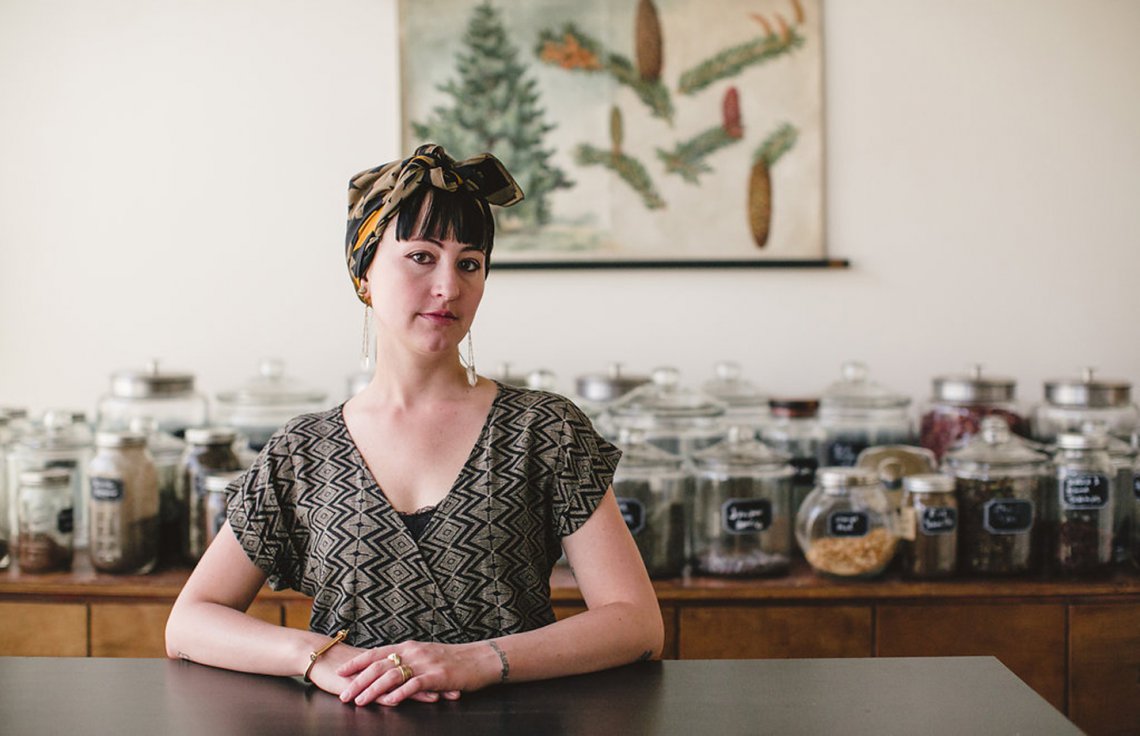Today's interviewee is a far cry from a traditional career woman, but we'd expect nothing less from someone who's taken up residence in a remote Colorado ghost town.
Shae Whitney is, in many ways, undefineable—and that's precisely what makes her so successful. After years working in the food and beverage industry (she started in a sandwich shop at the age of 15), Shae had acquired an in-depth knowledge of what goes into our food and drinks and found herself wanting to take a hands-on approach with the ingredients she'd use while bartending.
"I always wanted to get involved somehow in food or drink production, but I never imagined I would start a bitters company," says Shae when describing the path that would lead her to starting DRAM Apothecary with her partner in work and life, Brady Becker. Their lines of bitters and syrups are small batch and locally harvested (or in many cases foraged). And thanks to Shae's background in botany, each product serves a dual purpose: it can either be used medicinally or simply for taste, thrown into a classic cocktail for a little je ne sais quoi.
Visiting DRAM in Silver Plume is a transformative experience. You get the sense that the whole place reflects who Shae and Brady are as people, and that's a beautiful thing. That's true of everything they create—even DRAM packaging feels ethereal. It's a business built from the ground up that epitomizes the detail-oriented passion of true artisans.
Today, we talk to Shae about growing up in a Mormon household, her rebellious years in kitchens and bars, and the pains and pleasures of being a true perfectionist.
Her Starting Point
Tell us about what you studied and how it led you to DRAM Apothecary. Did you always have an idea you’d wind up working for yourself and in some type of holistic/nutritional capacity?
I studied various systems of growing and crafting food/beverages/medicines throughout the world under the scope of organic, small scale, large scale, and biodynamic agriculture. I always wanted to get involved somehow in food or drink production, but I never imagined I would start a bitters company. I dabbled with the idea of becoming a clinical herbalist, but at the end of the day, it just wasn’t for me.
What about your first jobs? What lessons did you learn from them that you didn’t pick up in your studies?
My first job was making sandwiches at a dingy sub shop owned by two diehard Phish fans when I was 15. I was basically raised in the food/restaurant industry. I grew up in a Mormon household, which had its strict limitations and taboos, so it was behind bars and in restaurant kitchens that I learned about the world, about people, the art of conversation, how to hustle, and how one can enjoy life through food and drink. Of course, this industry is notorious for drug use, scandal, drama, etc. so I grew up fast and hard. I think that’s why I was so ready to start my own business when the time came—I was young, but I’d already seen so many triumphs and failures in such a tough industry.
How would you explain DRAM to someone unfamiliar with your work?
I craft a line of bitters, teas, and syrups. I create all of the recipes and then spend my days making, bottling, labeling, and shipping my products. Bitters are essentially a high concentration of medicinal herbs, roots, and flowers in a chosen medium, or “solvent” which can be alcohol or glycerin. I was drawn to bitters specifically because they are used to flavor cocktails, but historically they were used to soothe upset stomachs and treat general digestive maladies. When I was developing all of the recipes for DRAM I wanted them to be dual use—as a cocktail/food flavoring but also a tonic you could take for general wellness
When did you know you wanted to quit your day job and take DRAM full-time?
I’d been making two flavors of bitters in my kitchen and started to slowly sell them to bar managers I knew around Denver. Then it just naturally took off—I was one of the first women in the country to craft bitters using wild, organic ingredients, and people wanted it.
I quit my job one night on a whim. It was one of those particularly crazy, unorganized nights behind the bar when you feel like you’re drowning—in the industry we call it “being in the weeds”—and I’d just hit the breaking point and put my two weeks in after my shift, with no real plan. It felt crazy but right. I didn’t have much money, but I had a product I believed in and a vision. A few days later my partner and I bought our tasting room and bar, and then I had a real kitchen and could expand my line (and pay my bills!).

Her Big Break
These days, your bitters and syrups are carried in pretty much every cool boutique, you’re getting tons of attention from food blogs and magazines—Martha Stewart even recently interviewed you for her radio show. How do you continue to work on a small scale as demand for your products grows?
I finally have employees now—that was a new thing as of 2015, and it’s made a huge difference. We’ve grown slowly, but steadily in order to keep up with demand while maintaining quality. We spend more time foraging now, but we have more hands on deck and are constantly scouting new foraging locations so it’s all worked out pretty smoothly.
Your partner, Brady Becker, is also your partner partner. Given that you’re both running the business full-time, how do you separate your personal lives from your work?
There is definitely a challenge here—Brady and I tend to get obsessive about work. We’ve learned we need to actually schedule days off on our shared calendar, or we’ll crash and burn and then our relationship starts to suffer. We work really well together, which is something I’m always thankful about. If we have a difference of opinion about business it can’t become personal, we always try to keep that in mind.
We’re sure no day is the same, but if you had to give an example, what might a work day look like?
9am: Coffee. Breakfast. Walk the dogs. Answer emails. I am not a morning person. Staff arrives at 8am and let themselves in.
10am-1pm: Packing online and wholesale orders, making more bitters, syrups, or teas (syrups take the entire production day, six hours of literally watching a pot boil), help employees bottle and label products. Change over the linens and clean the rooms in the DRAM Lodge.
1-3pm: Quick lunch at my desk at 1. Then if we’re foraging we’ll head out after lunch, once things have warmed up a bit (Silver Plume is cold about eight months of the year.) Reorder supplies, more emails. If we have a long foraging list we’ll leave around 11am and be gone all day.
3-4pm: staff clean-up of workshop. Take orders to Post Office (town is so small we don’t get a local pick-up, we drive packages to next town over.) Leave out any herbs we gathered to dry for next workday. Staff leaves at 4.
4-5pm: I’ll putz around the workshop and finish up last minute tasks. If I’m really on top of it I’ll do some yoga in my office. Brady and I will work on other projects like bar/tasting room and DRAM Lodge management.
5pm-???: I try to “clock out” by 5 but it doesn’t always happen. I like to unwind by watching TV in the bathtub, not exactly zen but it helps me shut my brain off. Dinner, reading, evening hike or dirt bike ride in the summer.
11ishpm: In bed by 11, sleep usually by 1am. I’m one of those people that chronically can’t sleep, so I guess I should just call it “laying horizontal for six hours.”
What’s the hardest part about running your business? Have you made any mistakes along the way?
The hardest part for me is the constant working and constantly thinking about work. I tend to sacrifice my personal wellness and self-care for work. I’ll go weeks without seeing friends or family, and then I’ll wonder why I feel sad. This has been my biggest mistake, and something I’m trying to focus on being better about, daily. Self-care is so important for success, it might even be the key. We live in a culture that seems to think you should just hustle until you drop dead. I know from experience that’s not the way to do it. You have to stop and smell the roses, or you’ll burn out, physically and creatively.

Her Perspective
How do your strengths and weaknesses play into your business?
I am extremely stubborn which is helpful when it comes to quality of product—I’m not willing to budge, even for the bottom line. But I can also be difficult to work with. It tends to be “my way or the highway,” which isn’t always the path towards healthy progress.
What’s your best advice for a woman starting out who’s interested in carving a niche for herself in a creative industry?
Don’t copy the ideas of others. You have to truly be unique these days if you’re going to make it. If you can’t find your niche, what makes you original, then that should be your first focus.
What’s one of your biggest successes so far?
Well, finding success in a ghost town has been a pretty big triumph thus far. I don’t think most businesses could do that, just move somewhere on a whim without a local economy to rely on. Being featured as one of “America’s Best Food Artisans” in Food and Wine magazine was also a huge deal for me. I read that magazine for years and never expected to see myself featured in a 3-page spread.
And finally, what do you wake up every day looking forward to? What’s next for your career?
I get excited about innovation and new projects. We just launched a line of all-natural sodas and sparkling drinking vinegars, and currently that’s what I’m pumped about. We have another huge project coming down the pipes this summer/fall…I can’t say much yet, but I’ll be getting back to my agriculture roots.
You May Also Like
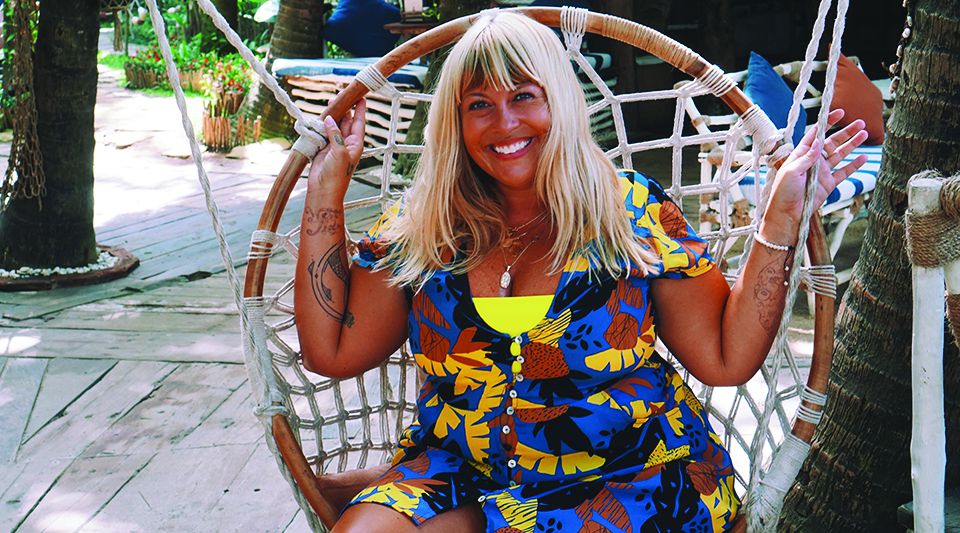
Fashion + Beauty
Unretouched—How Heather Caye Brown Disrupted the Swimwear Industry from Iowa
Heather Caye Brown always knew she wanted to be a designer. When she found out she wanted to spend the remainder of her life in a bikini, her career as a swimwear designer took off. Here's how she founded NIGHT DIVE from her home in Iowa.
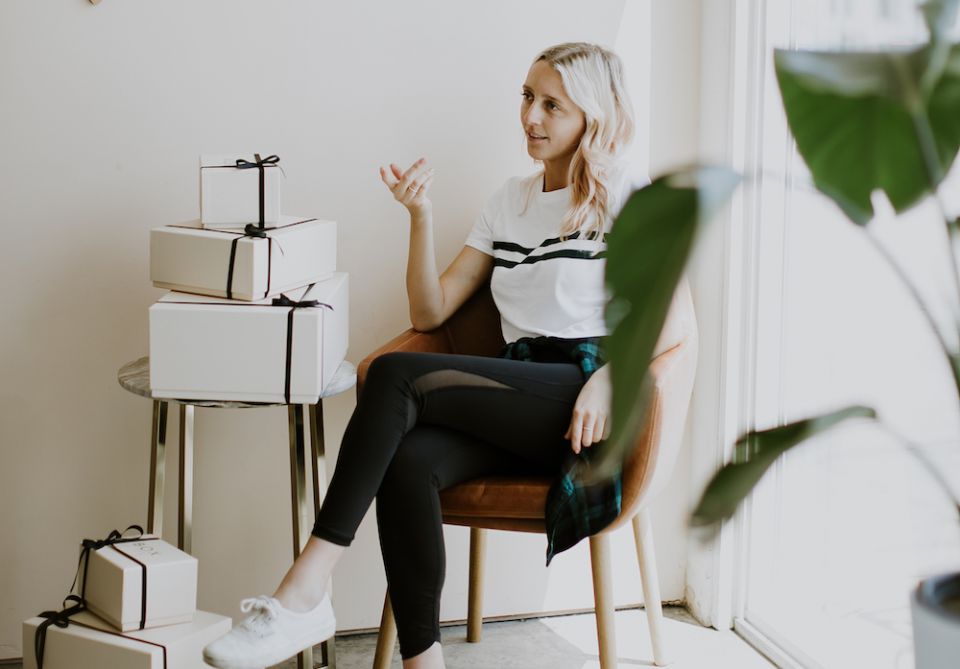
Fashion + Beauty
Disrupting the Gift-Giving Model with Co-Founder and CEO of BOXFOX
Chelsea Moore of BOXFOX joins us to talk about the gift-giving industry, about being a young leader, and how to work with friends.

Media, Fashion + Beauty
Women Who Lead: Julee Wilson, Fashion & Beauty Director at ESSENCE Magazine
On what working in fashion media is really like and why balance doesn't exactly exist.

Media, Travel + Hospitality
Women Who Lead: Hitha Palepu of Hitha on the Go
On traveling for work, travel as work, and everything in between.
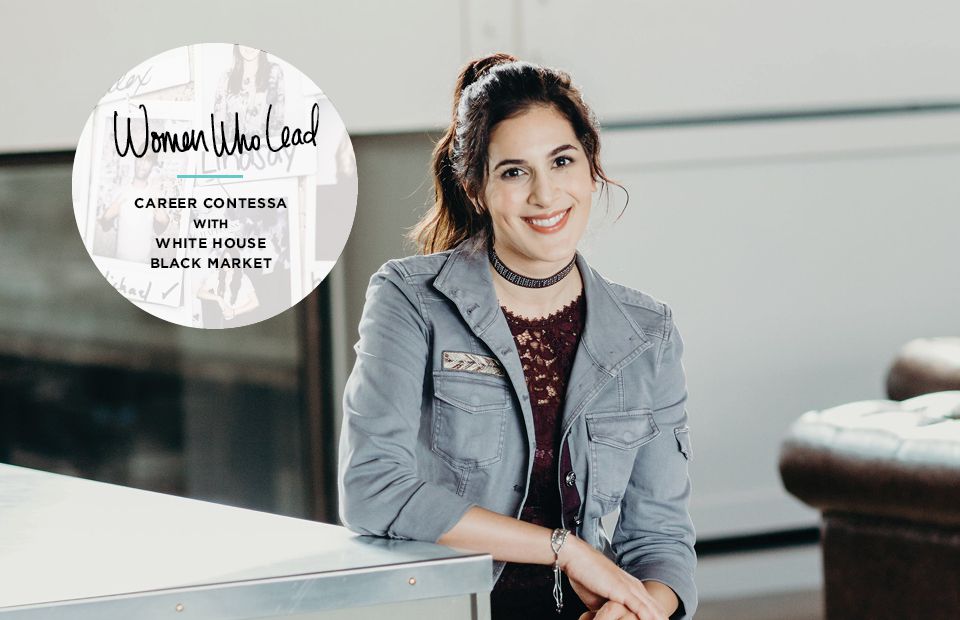
Media, Food + Beverage
Women Who Lead: Cynthia Samanian of Confetti Kitchen
From finance to foodie, Cynthia isn't afraid of risks—she's afraid of not taking them.
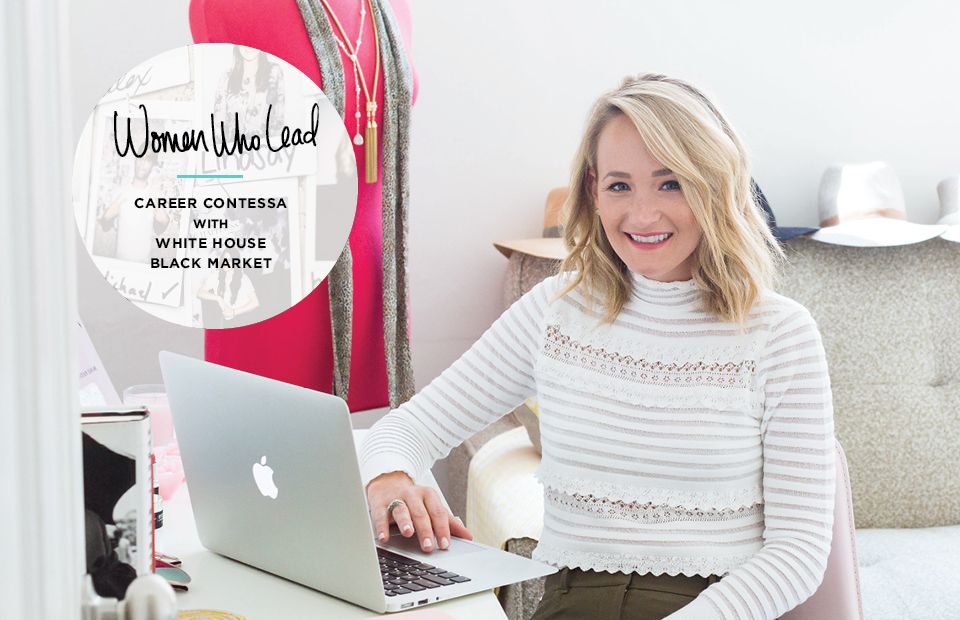
Media, Fashion + Beauty
Women Who Lead: Ashley Fultz of The Style Editrix
Ashley's showing us how motherhood and building a full-time career as a blogger can—and should—coexist.
Get the Best Career Advice Delivered To Your Inbox
Join our newsletter to stay in the loop.
